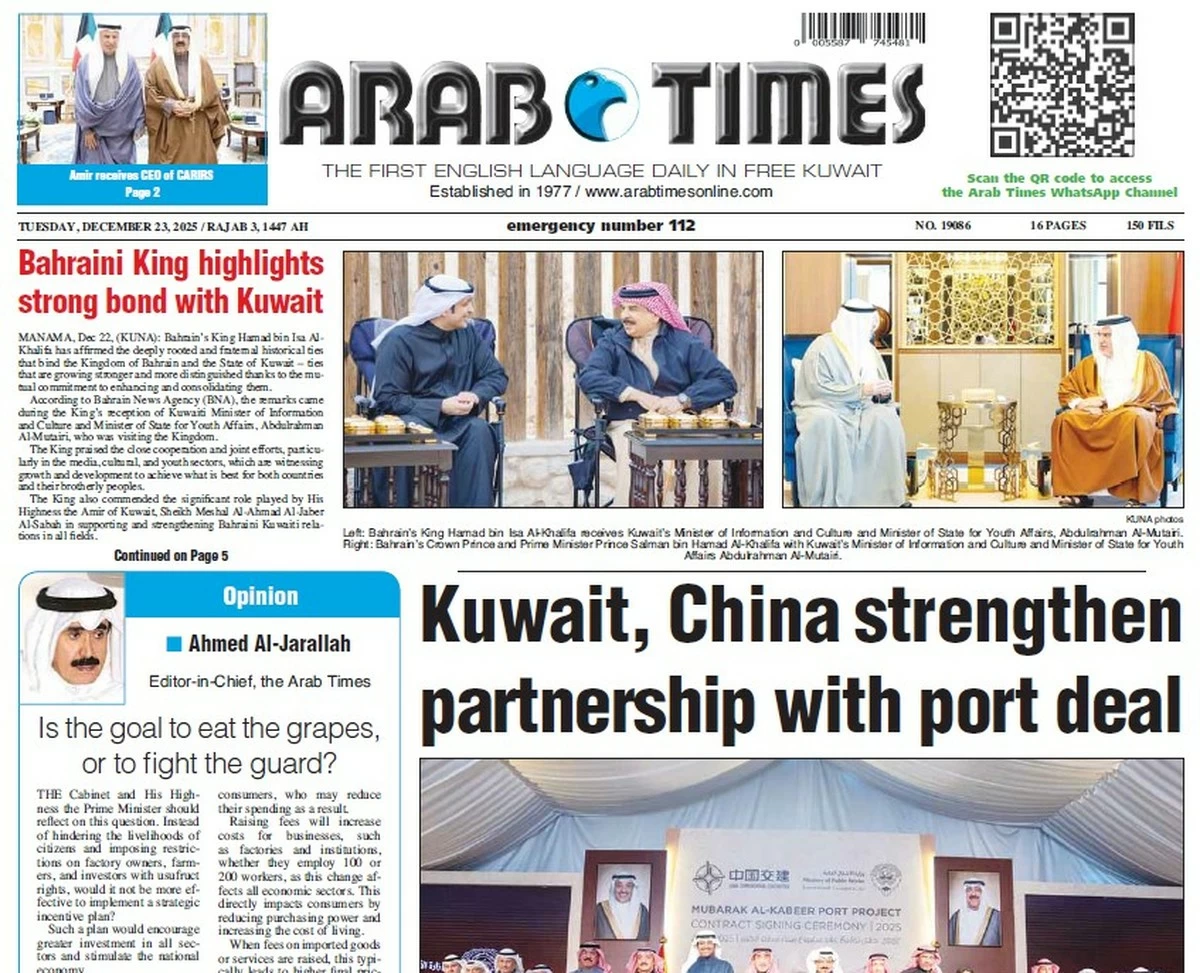12/04/2016
12/04/2016
KUWAIT CITY, April 11, (Agencies): Kuwait awarded projects worth KD 10 billion in 2015, a compound annual growth rate (CAGR) of 84 percent compared to 2013, said head of Research at Kuwait Financial Centre “Markaz” M.R Raghu on Sunday.
The rise in projects is an indicator of a “strong sign of growth,” he added in a lecture organized by Kuwait Economic Society (KES) on “the impact of 2014-15 State procurement on Kuwaiti financial sector.” He noted that the aggregate value of projects awarded during 2014 and 2015 was KD 18 billion.
He said the decline in oil prices has not affected significantly the projects’ landscape in Kuwait, indicating that big spending of government has not so far impacted positively main economic fields.
Real estate sector is the most dominant segment for projects in Kuwait as it has some 154 projects with a value of KD 37 billion, while 50 percent of projects signed in 2015 belong to the oil and gas sector, he stated.
He said there were 420 ongoing projects in Kuwait in the first quarter of 2016, 19 of them valued at KD 34 billion ($112.2 billion) were placed on hold and another 20 projects estimated at KD seven billion were shelved.
Most ongoing projects are in the early stages of execution, and projects of oil, gas, power and water sectors accounted for 74 percent of projects completed (by value) between 2012 and 2015, he mentioned.
Raghu stressed that the awarding of projects is yet o create any impact on capital markets and had a marginal impact in banks’ credit growth.
The Kuwait Authority for Partnership Projects (KAPP) would award public-private partnership (PPP) projects worth KD two billion in 2016, he expected.
Meanwhile, the oil-rich Gulf states are expected to borrow between $285 billion and $390 billion through 2020 to finance budget deficits resulting from low oil price.
The six Gulf Cooperation Council (GCC) states, which heavily rely on oil earnings, are expected to post a shortfall of $318 billion in 2015 and 2016, Kuwait Financial Centre (Markaz) said in a report.
The GCC groups Bahrain, Kuwait, Oman, Qatar, Saudi Arabia and United Arab Emirates.
Their public finances have been hit hard since oil prices shed more than two thirds of their value since mid-2014.
Oil income made up over 80 percent of public revenues in GCC states before the price decline.
Markaz said that GCC states will finance their deficits partly through borrowing and the rest by tapping their huge fiscal reserves.
OPEC kingpin Saudi Arabia last year borrowed $26 billion from local banks and used over $100 billion of its reserves that stood at $732 billion at the end of 2014, the report said.
With the exception of Oman and Bahrain, GCC states have huge fiscal reserves and a low level of public debt allowing them to raise large volumes of domestic and international debt, the report said.
The GCC states posted a combined deficit of $160 billion last year compared to a surplus of $220 billion in 2012.


